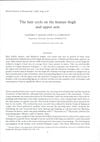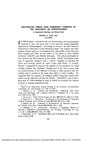Electrolysis: Observations from 13 Years and 140,000 Hours of Experience
October 1995
in “
Journal of the American Academy of Dermatology
”

TLDR Electrolysis is effective for permanent hair removal, but technique is key to avoid scarring, and sometimes hormonal treatment is needed for women with hirsutism.
Based on 13 years and 140,000 hours of experience, electrolysis has been found to be an effective method for permanent hair removal, particularly using the blend method. Proper technique is crucial, including correct needle insertion and the use of appropriate intensities and durations, to avoid scarring. Hair itself is not an electrical conductor, and electronic tweezers do not provide permanent results. Shaving 1 to 5 days prior to the procedure increases its efficacy by targeting actively growing anagen hairs. The introduction of EMLA, a local anesthetic, has made the process less painful, and the use of prepackaged, presterilized needles has simplified sterilization requirements. However, women with hirsutism may need additional hormonal treatment alongside electrolysis for satisfactory results.

